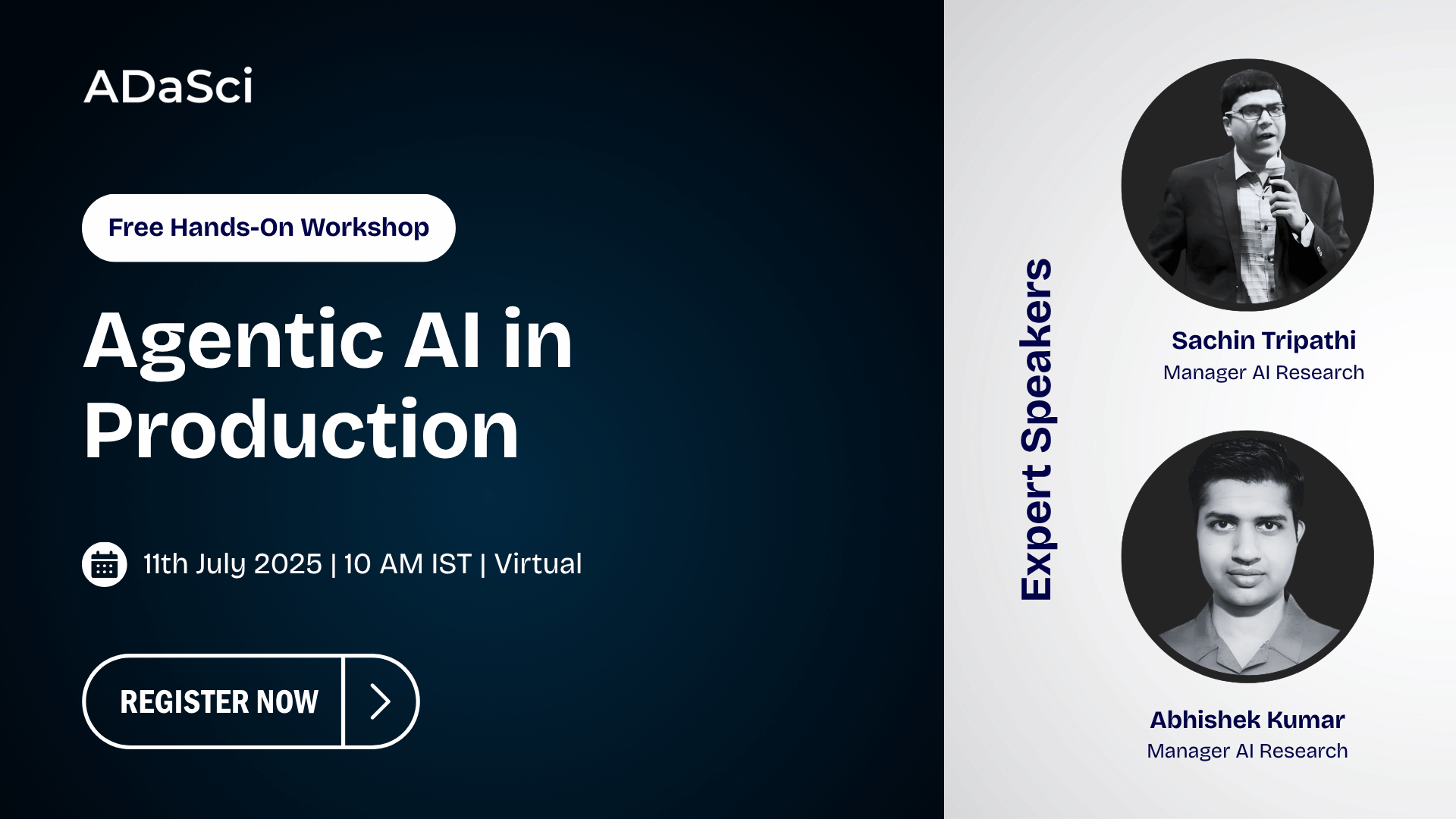Top 10 Generative AI and LLM-Based Research Opportunities in Healthcare

Explore more from ADaSci
In the landscape of healthcare, the synergy between Generative AI and Large Language Models (LLMs) has opened doors to transformative advancements. These technological leaps offer a myriad of research opportunities, each poised to redefine healthcare delivery, optimize processes, and elevate patient care. Here, we delve into ten pivotal opportunities at the intersection of AI and healthcare, elucidating their technical implementations and the profound benefits they promise.
Let’s take a look at some of the high-value research opportunities in healthcare based on Generative AI and LLMs.
1. Drug Discovery and Development Optimization
Innovations in Generative AI have catalyzed the acceleration of drug discovery and development. By harnessing the capabilities of LLMs, researchers can now mine vast repositories of biomedical data to predict molecular interactions and generate novel compounds. These AI-driven algorithms employ deep learning techniques to analyze molecular structures, historical data, and desired properties, significantly expediting the drug discovery process.
Benefits: The expedited identification of promising compounds not only reduces the time-to-market for new medications but also slashes development costs. Pharmaceutical companies can focus resources on the most viable candidates, potentially revolutionizing treatment options for various ailments.
2. Clinical Trial Optimization
AI-powered predictive models, leveraging the prowess of LLMs, are reshaping the landscape of clinical trials. By analyzing patient data, historical trial outcomes, and demographic factors, these systems refine trial designs, optimize participant selection, and enhance trial protocols. Natural Language Processing techniques integrated with these models streamline the interpretation of clinical records, aiding in precise participant stratification.
Benefits: The optimized trial designs yield increased efficiency, reduced trial duration, and heightened success rates. Improved participant selection ensures trials are conducted with a higher probability of success, consequently expediting the validation and adoption of novel treatments.
3. Personalized Medicine and Treatment Plans
Advancements in AI-driven personalization, facilitated by LLMs, have heralded the era of precision medicine. These models assimilate patient records, genetic data, and clinical information to craft tailored treatment plans. By interpreting unstructured data, these systems optimize medication dosages and therapies based on individual health profiles.
Benefits: Personalized treatment plans mitigate adverse reactions, optimize therapeutic efficacy, and improve patient outcomes. The tailored approach enhances patient satisfaction and potentially reduces healthcare costs associated with trial-and-error treatment methodologies.
4. Natural Language Processing for Electronic Health Records (EHRs)
In the realm of Electronic Health Records (EHRs), the integration of NLP with LLMs revolutionizes data interpretation. These AI-powered systems interpret unstructured EHRs, transforming free-text medical notes into structured, actionable data. By extracting valuable information from clinical narratives, these systems support accurate coding, precise diagnoses, and informed decision-making by healthcare providers.
Benefits: Enhanced data accessibility and accuracy streamline clinical workflows, leading to faster diagnoses, reduced errors, and improved patient care continuity. Healthcare providers can make more informed decisions based on comprehensive and standardized data interpretations.
5. Healthcare Chatbots and Virtual Assistants
Conversational AI agents, empowered by LLMs, are reshaping patient engagement and healthcare accessibility. These AI-driven chatbots and virtual assistants provide personalized healthcare advice, answer patient queries, and offer administrative support. Deep learning techniques enable these systems to comprehend and respond contextually to user inquiries.
Benefits: Improved patient engagement, 24/7 availability, and streamlined administrative tasks significantly enhance healthcare accessibility and efficiency. These AI-driven assistants alleviate the burden on healthcare providers, offering timely assistance and disseminating accurate information.
6. Medical Image Analysis and Interpretation
The fusion of AI-driven image analysis algorithms with Large Language Models revolutionizes the interpretation of medical imaging data. These sophisticated algorithms analyze complex medical images like MRIs, CT scans, and X-rays for disease detection and treatment planning. Integration with language models enables the generation of detailed reports and insights from these images, aiding clinicians in decision-making.
Benefits: Automated image interpretation enhances diagnostic accuracy, expedites treatment decisions, and facilitates early disease detection. It empowers healthcare professionals with comprehensive insights, potentially improving patient outcomes and treatment efficacy.
7. Predictive Analytics for Disease Outbreaks
AI models empowered by LLMs are instrumental in predictive analytics for disease outbreaks. By analyzing linguistic patterns in global health data, news reports, and social media, these systems predict and forecast potential outbreaks. Language models enable the interpretation of textual data, providing early warnings and informing proactive measures.
Benefits: Early detection enables swift intervention, proactive measures, and optimized resource allocation, potentially mitigating the impact of outbreaks. Public health organizations benefit from strategic planning and preventive actions based on predictive insights.
8. Continuous Monitoring and Predictive Healthcare
AI-driven analysis of continuous health monitoring data from wearables and IoT devices, supported by LLMs, enables predictive healthcare. These models interpret real-time health metrics to predict potential health issues, facilitating proactive interventions and personalized healthcare strategies.
Benefits: Proactive interventions based on continuous monitoring reduce healthcare costs, prevent health deterioration, and improve patient outcomes. Patients benefit from personalized and timely interventions, enhancing overall health management.
9. Medical Literature Summarization and Knowledge Discovery
AI systems employing LLMs aid researchers and clinicians in navigating vast volumes of medical literature. These systems summarize and extract key insights, accelerating literature reviews and facilitating access to critical information for informed decision-making.
Benefits: Accelerated assimilation of knowledge enhances research productivity, aids in evidence-based decision-making, and promotes the adoption of the latest advancements in clinical practice.
10. Ethical and Regulatory Compliance Solutions
AI systems leveraging Large Language Models interpret complex legal documents and healthcare regulations, ensuring ethical and regulatory compliance. These systems support decision-making processes in healthcare governance, promoting transparency and adherence to guidelines.
Benefits: Enhanced compliance minimizes risks, fosters accountability, and strengthens trust within the healthcare ecosystem. Transparent governance based on AI-assisted interpretations fosters a culture of ethical and regulatory adherence.
Final Words
In conclusion, the integration of Generative AI and Large Language Models holds immense promise in reshaping healthcare. These ten opportunities underscore the potential for innovation, optimization, and enhanced patient care. Leveraging these technologies not only propels research advancements but also underscores the profound business value they offer to the healthcare industry.






